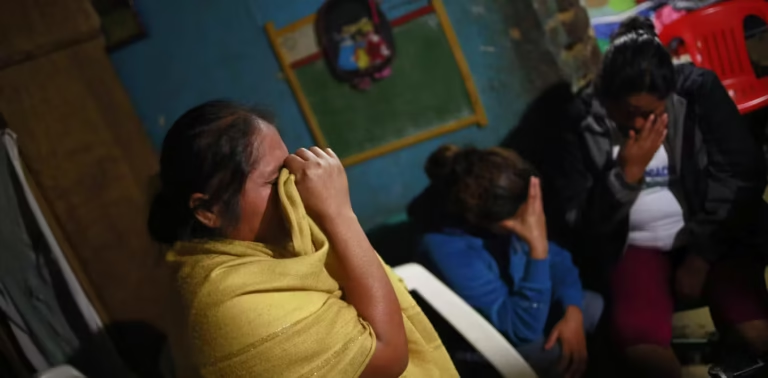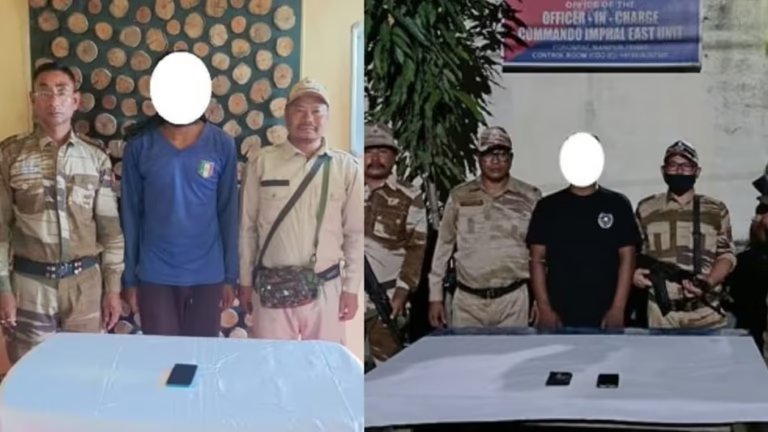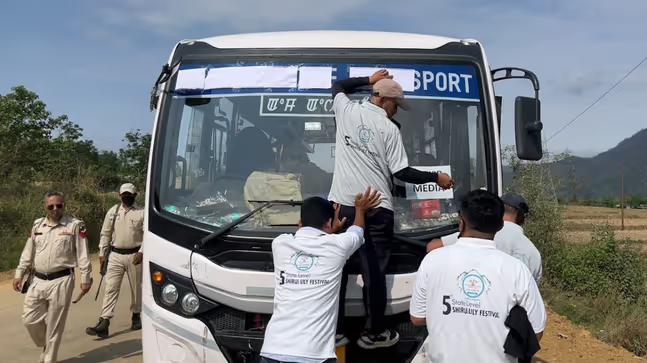Women CSOs Call for Resignation of Manipur CM Over AFSPA Reimposition
Women’s civil society organizations (CSOs) in Manipur are demanding the resignation of Chief Minister N. Biren Singh after the reimposition of the Armed Forces Special Powers Act (AFSPA) in certain parts of the state. They argue that this move exacerbates the already volatile situation in the region and negatively impacts the safety and freedom of women. These CSOs have called for a shift in policy and are urging the central government to reconsider its approach to handling unrest in Manipur.
Introduction: The AFSPA Controversy in Manipur
The Armed Forces Special Powers Act (AFSPA) has long been a contentious issue in India, particularly in states like Manipur, where the law grants extraordinary powers to the military. Under AFSPA, the armed forces have the authority to arrest individuals, search properties without warrants, and use force, including deadly force, to maintain order in regions declared “disturbed.” While this law is designed to combat insurgency, it has been heavily criticized for its alleged human rights violations and its disproportionate impact on civilians, particularly women and children.
In Manipur, a state with a history of ethnic tensions, the reimposition of AFSPA has reignited debates over its fairness and its effects on the local population. Amid rising unrest in the region, especially after violent clashes between different ethnic communities, the state government has decided to extend AFSPA’s reach. However, this decision has sparked intense opposition, particularly from women’s CSOs, who argue that the law exacerbates an already fragile situation.
The Growing Opposition to AFSPA
The reimposition of AFSPA has led to widespread protests, with women’s groups at the forefront of this resistance. These groups argue that AFSPA legitimizes violence and the abuse of power, undermining women’s safety and rights. According to the CSOs, the law enables the security forces to act with impunity, creating an environment where abuses like arbitrary arrests, torture, and sexual violence can go unchecked.
Women in Manipur have long been at the heart of protests against AFSPA. Their fight has been emblematic of the broader struggle for human rights in the region. In 2004, the death of Thangjam Manorama, a young woman allegedly killed by the Assam Rifles, became a flashpoint in the fight against AFSPA. Women in Manipur protested her death, and their demands for justice were met with resistance, intensifying the calls for the repeal of AFSPA.
Why the Call for Resignation?
The current demand for Chief Minister N. Biren Singh’s resignation stems from the perception that his government has failed to protect the rights of the people of Manipur. The CSOs believe that the reimposition of AFSPA under Singh’s leadership sends a dangerous message: that the state is willing to use military force rather than engage in dialogue or seek a peaceful resolution to the unrest. This, they argue, is not the path to peace but a step backward toward further violence and division.
For many, Singh’s decision to endorse AFSPA’s extension is seen as an abdication of his responsibility to safeguard the rights of his people, particularly the women of Manipur. The CSOs argue that the Chief Minister’s actions have allowed an environment of fear and repression to thrive, making it harder for local women and families to live without fear of violence and discrimination.
The Impact of AFSPA on Women in Manipur
The effects of AFSPA on women in Manipur have been profound. From the use of sexual violence as a weapon of war to the psychological toll of living in a militarized zone, women bear the brunt of the law’s harsh measures. Women’s groups argue that AFSPA not only increases physical violence but also contributes to a culture of impunity where violations of women’s rights are rarely addressed. The militarization of everyday life in Manipur has meant that women are often subjected to routine humiliation and violence at the hands of security forces.
In particular, the presence of military forces in civilian areas has led to a rise in sexual violence. The law allows the military to operate without fear of legal repercussions, making it easier for members of the armed forces to engage in such crimes. Women’s CSOs have consistently demanded that these crimes be acknowledged and addressed, with calls for a complete repeal of AFSPA in the region.
The Role of Civil Society Organizations (CSOs)
Civil society organizations, particularly those led by women, have played a crucial role in challenging AFSPA and advocating for justice in Manipur. These groups have been vocal in their opposition to the law, often taking to the streets in large-scale protests. Their campaigns have been instrumental in raising awareness about the human rights violations under AFSPA, and they continue to push for a more peaceful approach to resolving the region’s complex political situation.
The CSOs argue that the government’s heavy reliance on the military to control unrest only serves to escalate tensions and deepen the divisions between communities. Instead, they advocate for dialogue, peaceful negotiations, and a more inclusive approach to addressing the issues facing Manipur.
The Demand for Policy Change
The demand for the resignation of Chief Minister N. Biren Singh is not only about holding him accountable for his decisions but also about calling for a broader change in policy. Women’s CSOs argue that the continued militarization of Manipur is not a sustainable solution to the region’s problems. Instead, they urge the government to focus on long-term peace-building efforts, including investing in education, healthcare, and community development.
The CSOs also call for the repeal of AFSPA and the establishment of mechanisms to hold the security forces accountable for any human rights violations. They argue that such reforms are essential to ensuring that Manipur moves toward a future of peace and justice, rather than continuing down a path of militarization and repression.
Conclusion: The Road Ahead
The call for the resignation of the Chief Minister reflects a broader frustration with the political status quo in Manipur. Women’s CSOs, alongside other civil society groups, continue to demand change, hoping to bring attention to the human rights violations and the need for a more inclusive, peaceful approach to resolving the conflict in the region.
While the path to peace in Manipur is complex, the advocacy of women’s groups has been a vital part of the struggle. Their fight for justice not only calls for the repeal of AFSPA but also challenges the broader militarization of the region. It is clear that, for many in Manipur, the fight for peace and human rights is far from over.
FAQs
- What is AFSPA and why is it controversial in Manipur? AFSPA is a law that grants special powers to the military in “disturbed areas.” In Manipur, it is controversial due to its impact on civilian rights, particularly women, and its potential for human rights abuses.
- Why are women’s CSOs calling for the resignation of the Chief Minister? They argue that the reimposition of AFSPA under his leadership worsens the human rights situation in Manipur, especially for women, and sends the wrong message about how the government intends to deal with unrest.
- How has AFSPA affected women in Manipur? Women in Manipur have been subjected to violence, including sexual violence, at the hands of military forces operating under AFSPA. The law’s lack of accountability for security forces has exacerbated these issues.
- What do women’s CSOs want instead of AFSPA? They call for the repeal of AFSPA and advocate for peaceful negotiations and development-focused policies to address the region’s issues.
- What role do civil society organizations play in Manipur? CSOs, particularly those led by women, are central to raising awareness about human rights violations and advocating for justice and policy change in the region.



